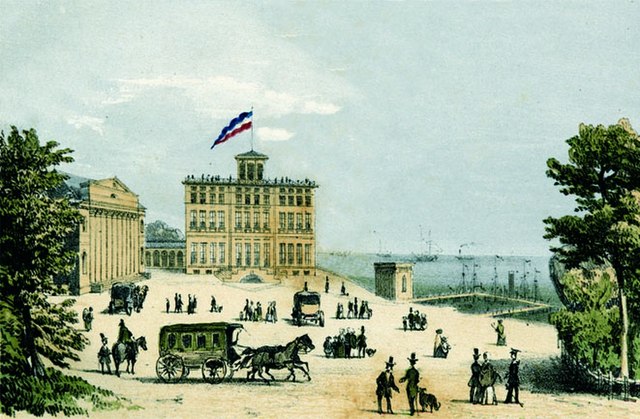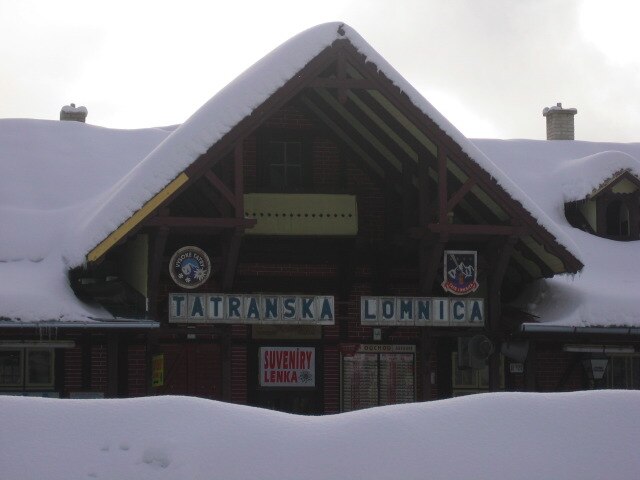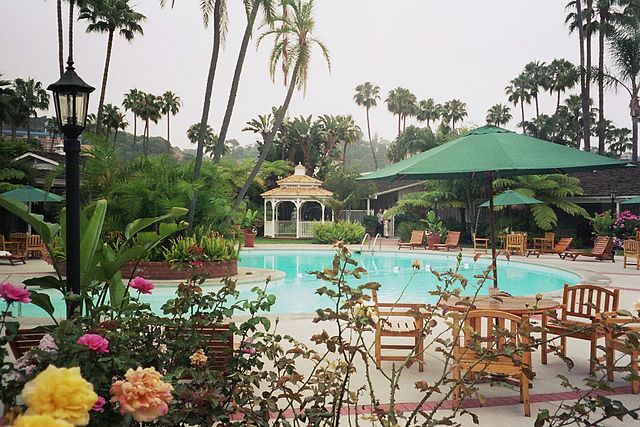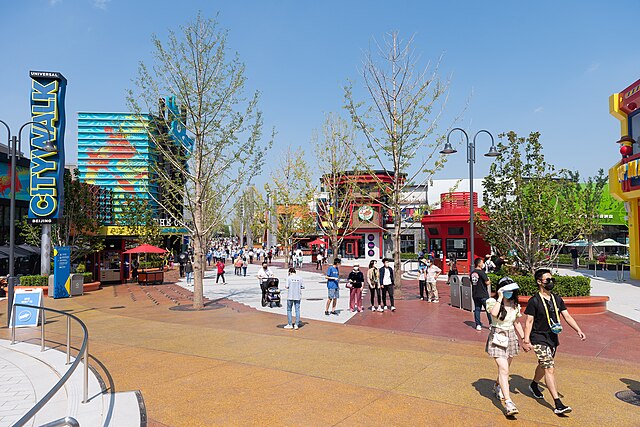A resort town, resort city or resort destination is an urban area where tourism or vacationing is the primary component of the local culture and economy. A typical resort town has one or more actual resorts in the surrounding area. Sometimes the term resort town is used simply for a locale popular among tourists. One task force in British Columbia used the definition of an incorporated or unincorporated contiguous area where the ratio of transient rooms, measured in bed units, is greater than 60% of the permanent population.
Heiligendamm in Germany, established in 1793, the oldest seaside resort in continental Europe
Aerial view of the Cancún island, from the top of the Torre Escénicain, May 2008
Railway station in Tatranská Lomnica ski resort, Slovakia
A comic drawn for a newspaper in a resort area; it depicts elderly local residents with limited income who are used to visiting attractions nearby.
A resort is a self-contained commercial establishment that tries to provide most of a vacationer's wants, such as food, drink, swimming, accommodation, sports, entertainment and shopping, on the premises. A hotel is frequently a central feature of a resort and the term resort may be used for a hotel that provides an array of entertainment and recreational activities. Some resorts are also condominium complexes that are timeshares or owned fractionally or wholly owned condominium. A resort is not always a commercial establishment operated by a single company, but in the late 20th century, that sort of facility became more common.
Resorts combine a hotel and a variety of recreations, such as swimming pools, as shown here in San Diego, California
Kayaking provided by a lakeside resort in Jasper, Alberta
Hong Kong Disneyland Resort
Universal Beijing Resort








